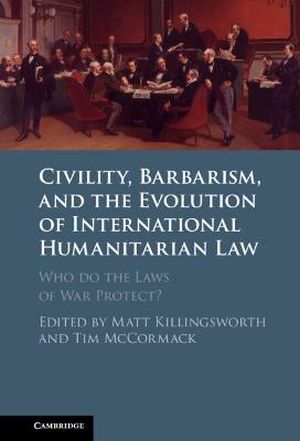
Efforts to moderate conflict are as old as conflict itself. Throughout the ages, restraint in warfare has been informed by religious and ethical considerations, chivalry and class, and, increasingly since the mid-19th century, a body of customary and treaty law variously referred to as the laws of war, the law of armed conflict (LOAC) or international humanitarian law (IHL). As they evolved from the mid-19th century, these laws were increasingly underpinned by humanitarianism, then in the mid-20th century, were assumed to be universal. But violations of these restraints are also as old as conflict itself. The history of conflict is replete with examples of exclusions from protections designed to moderate warfare. This edited volume explores the degree to which protections in modern warfare might be informed by notions of 'civility' and 'barbarism', or, to put it another way, asks if only those deemed to be civilised are afforded protections prescribed by the laws of war?